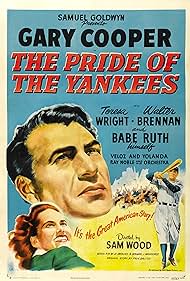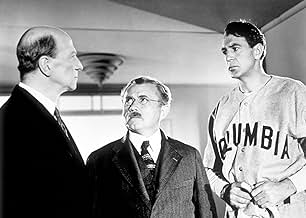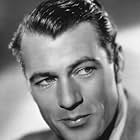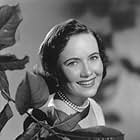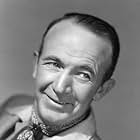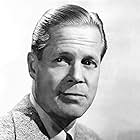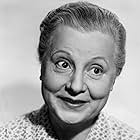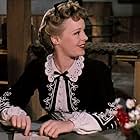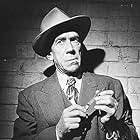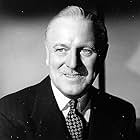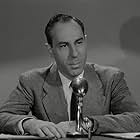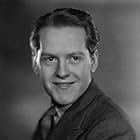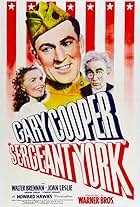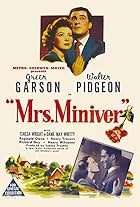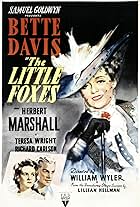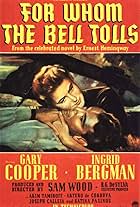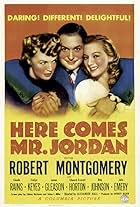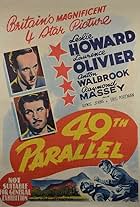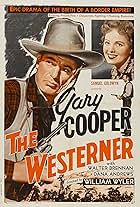The story of the life and career of famed baseball player Lou Gehrig.The story of the life and career of famed baseball player Lou Gehrig.The story of the life and career of famed baseball player Lou Gehrig.
- Won 1 Oscar
- 1 win & 10 nominations total
Ludwig Stössel
- Pop Gehrig
- (as Ludwig Stossel)
Bob Meusel
- Robert W. Meusel
- (as Robert W. Meusel)
Storyline
Did you know
- TriviaIn reality, Gary Cooper was decidedly not a fan of baseball and required extensive coaching in order to look even passable on a baseball diamond. In fact, he had never played the game before, even as a youth, and had never even seen a baseball game in person until he was hired for this film.
- GoofsAs Gehrig (Cooper) is doing his homework at Columbia, he writes with his right hand. Whilst Gehrig batted and threw left-handed, like many lefties of the era (perhaps because of "correction" in school), he wrote with his right hand.
- Quotes
[last lines]
Lou Gehrig: [his farewell speech]
Lou Gehrig: Today, I consider myself the luckiest man on the face of the earth... play ball!
- Crazy creditsOpening credits acknowledgment: Appreciation is expressed for the gracious assistance of Eleanor Gehrig (as Mrs. Lou Gehrig) and for the cooperation of Ed Barrow (as Mr. Ed Barrow) and the New York Yankees arranged by Christy Walsh.
- Alternate versionsA colorized version is available.
- ConnectionsFeatured in Diamonds on the Silver Screen (1992)
- SoundtracksTake Me Out to the Ball Game
(1908) (uncredited)
Music by Albert von Tilzer
Played during the opening credits and often in the score
Featured review
First off, my favorite actor of all time is Gary Cooper. I love his acting style, the gawkiness he often used in his screen roles, in addition of course to the fact that I thought he was absolutely gorgeous, in his prime (when he was in his 30's and 40's). Cooper's appeal is only enhanced, for me, by the distance of his on screen persona from his real-life one...he was quite the ladies' man in real life, not awkward with women as the characters he often portrayed on screen, and his smoldering sexuality shows from his piercing blue eyes. His lively offscreen affairs with stars such as Clara Bow (who famously declared "He's hung like a horse and he can go all night!"), Lupe Velez aka "The Mexican Spitfire", and of course Patricia Neal, are the stuff of old Hollywood legend.
Kevin Costner and Ralph Fiennes in their primes had nothing' on Coop. He was the man. Cooper, who started off wanting to be an artist, fell into acting instead, first as a stunt man in westerns, but quickly getting leading roles. He continued to do most of his own riding and stunts even into his later years, carving himself quite a name as a star of westerns, including the western classic "High Noon" (1952), but my favorite films of his were films such as "Mr. Deeds Goes To Town" (1936), "Meet John Doe" (1941), "Ball Of Fire" (1941), "Sargeant York" (1941), and of course "The Pride Of The Yankees". My husband understands my adoration of Gary Cooper; and/but we had this brief discussion before we watched my recently purchased DVD of the film (I'd seen it before, but didn't own a copy of it):
Husband: "I don't mind watching it with you as long as you don't make those noises you always make when you watch a Gary Cooper movie."
Me: "What noises?"
Husband: "Those noises like the ones Homer Simpson makes when he looks at a stick of butter...'Mmmmmmmm'...."
Me: "What? I didn't know I did that. Okay, I won't make any weird noises while we watch it."
So I was quiet (except for of course choking up in tears when Cooper delivers Gehrig's legendary "Today, I consider myself to be the luckiest man on the face of the earth" farewell speech). Gehrig's retirement speech helped immortalize him as a hero and an all-American role model.
"The Pride of the Yankees" is the blueprint for the sports biopic, and is generally considered to be the best movie about baseball ever made. Teresa Wright stars as his wife Eleanor. Wright, who just passed away this March, was an excellent actress, and a beautiful woman. The last film I saw her in was in a small part in "Somewhere In Time", and she had aged wonderfully. She and Cooper had great chemistry on screen, holding her own ground as he towered over her petite 5'3" frame.
Walter Brennan, a frequent Cooper co-star and real-life friend, and Babe Ruth as himself are two other co-stars who contribute much to the film.
The film traces the rags-to-riches story of Gehrig, as his childhood dream comes true when he's signed to the New York Yankees, and his untimely retirement when he is stricken with the fatal, neurological disease ALS (amyotrophic lateral sclerosis) which was afterwards simply called "Lou Gehrig's Disease". Cooper, although a bit of an odd choice for the part (one reason being his height, he was about 6'4"), gives an endearing, heartfelt, dignified performance, for which he was nominated for an Academy Award. Gehrig was left-handed, Cooper right-handed, which was further complicated by the fact that Cooper himself wasn't a capable baseball player. For the filming, his uniform had "New York" printed backwards on it, he ran to third base when he hit a ball, and then the print was reversed.
Nominated for 11 Academy Awards in all, and receiving 1 (for Film Editing), "The Pride Of The Yankees" still stands as a must-see film for baseball fans and fans of classic cinema alike.
Kevin Costner and Ralph Fiennes in their primes had nothing' on Coop. He was the man. Cooper, who started off wanting to be an artist, fell into acting instead, first as a stunt man in westerns, but quickly getting leading roles. He continued to do most of his own riding and stunts even into his later years, carving himself quite a name as a star of westerns, including the western classic "High Noon" (1952), but my favorite films of his were films such as "Mr. Deeds Goes To Town" (1936), "Meet John Doe" (1941), "Ball Of Fire" (1941), "Sargeant York" (1941), and of course "The Pride Of The Yankees". My husband understands my adoration of Gary Cooper; and/but we had this brief discussion before we watched my recently purchased DVD of the film (I'd seen it before, but didn't own a copy of it):
Husband: "I don't mind watching it with you as long as you don't make those noises you always make when you watch a Gary Cooper movie."
Me: "What noises?"
Husband: "Those noises like the ones Homer Simpson makes when he looks at a stick of butter...'Mmmmmmmm'...."
Me: "What? I didn't know I did that. Okay, I won't make any weird noises while we watch it."
So I was quiet (except for of course choking up in tears when Cooper delivers Gehrig's legendary "Today, I consider myself to be the luckiest man on the face of the earth" farewell speech). Gehrig's retirement speech helped immortalize him as a hero and an all-American role model.
"The Pride of the Yankees" is the blueprint for the sports biopic, and is generally considered to be the best movie about baseball ever made. Teresa Wright stars as his wife Eleanor. Wright, who just passed away this March, was an excellent actress, and a beautiful woman. The last film I saw her in was in a small part in "Somewhere In Time", and she had aged wonderfully. She and Cooper had great chemistry on screen, holding her own ground as he towered over her petite 5'3" frame.
Walter Brennan, a frequent Cooper co-star and real-life friend, and Babe Ruth as himself are two other co-stars who contribute much to the film.
The film traces the rags-to-riches story of Gehrig, as his childhood dream comes true when he's signed to the New York Yankees, and his untimely retirement when he is stricken with the fatal, neurological disease ALS (amyotrophic lateral sclerosis) which was afterwards simply called "Lou Gehrig's Disease". Cooper, although a bit of an odd choice for the part (one reason being his height, he was about 6'4"), gives an endearing, heartfelt, dignified performance, for which he was nominated for an Academy Award. Gehrig was left-handed, Cooper right-handed, which was further complicated by the fact that Cooper himself wasn't a capable baseball player. For the filming, his uniform had "New York" printed backwards on it, he ran to third base when he hit a ball, and then the print was reversed.
Nominated for 11 Academy Awards in all, and receiving 1 (for Film Editing), "The Pride Of The Yankees" still stands as a must-see film for baseball fans and fans of classic cinema alike.
- ClassicAndCampFilmReviews
- Aug 3, 2005
- Permalink
Details
- Runtime2 hours 8 minutes
- Color
- Aspect ratio
- 1.37 : 1
Contribute to this page
Suggest an edit or add missing content

Top Gap
By what name was The Pride of the Yankees (1942) officially released in India in English?
Answer